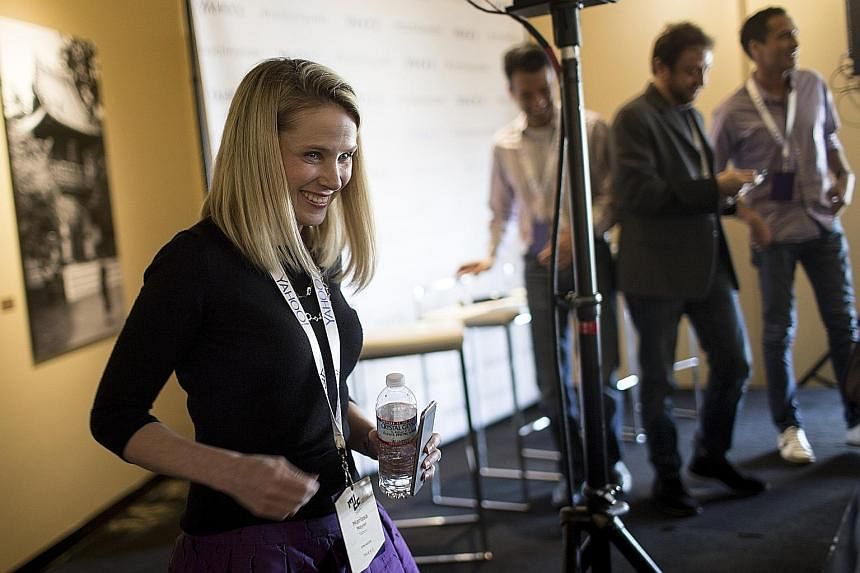NEW YORK • Some corners of corporate America have a new message for new parents: Put down that laptop and pick up your baby instead.
Even as employees are increasingly tethered to the office, a workplace culture that urges new mothers and fathers to hurry back to their cubicles is beginning to shift.
Companies like Accenture and Microsoft recently said that they would offer more benefits like generous parental leave.
The trend may be a sign of a tightening job market, at least for certain highly-skilled workers.
But it also raises the question of whether these new benefits will be more talked up than actually taken up. Employees may wonder if it could hurt their careers. At many firms, the new benefits are at odds with a demanding, 24/7 workplace culture - that starts from the top.
On Monday, Ms Marissa Mayer, chief executive of Yahoo, announced that she was pregnant with twins .
"I plan to approach the pregnancy and delivery as I did with my son three years ago, taking limited time away and working throughout," she wrote in a post on Tumblr.
Such contradictory signalling from Yahoo, which lengthened its parental leave in 2013, is typical and ambiguous, said Ms Joan C. Williams, director of the Centre for WorkLife Law at the University of California, Hastings.
"The underlying work culture sends the message that if you're really committed, you're here all the time," she said.
One after another, major companies are announcing more family-oriented policies. Accenture, the global consulting firm, said last week that primary caregivers would not have to travel for the first year of their children's lives. Microsoft nearly doubled to 20 weeks its paid leave for women who have just given birth, tripled paid leave for all other new parents and began offering them the chance to ease back into work half time. Adobe Systems also significantly increased paid leave.
Netflix went the furthest: It will offer fully-paid leave for new mothers or fathers for a year after a birth.
"We're in the midst of revolutionary changes in the workplace," said Mr Stewart Friedman, director of the Wharton Work/Life Integration Project at the University of Pennsylvania. "It will be a 15- to 20-year project, but the competitive pressures in the labour market are pushing towards greater freedom and flexibility."
At the same time, the new benefits are an acknowledgment that the US economy is struggling to adjust to modern gender roles and the rise of two-income families. As work hours have increased, and in the absence of government policies like paid parental leave, juggling work and family has become daunting for many workers at all income levels. More than half of non-working Americans say family responsibilities are a reason they are not working, according to a New York Times/CBS News/Kaiser Family Foundation poll taken late last year.
Just 12 per cent of the US private sector has access to paid family leave, according to the Department of Labour.
White-collar workers are often expected to have a singular focus on work: Amazon, which a recent New York Times article said fosters a bruising atmosphere, offers no paternity leave. For blue-collar workers in most companies, leave is even less common. Netflix, for instance, did not give its leave to hourly employees.
One reason some companies are expanding benefits now is that millennials have higher expectations for gender equality at home and for accommodation from their employers. Highly-educated women have become more likely to believe that an ambitious career does not preclude children. And competition for elite workers has become fierce.
Ms Lauren Edelmeier, a senior manager in design research and development at Microsoft, is in the middle of 20 weeks' paid leave with her three-month-old daughter Vivian. "I feel really fortunate to have this time at home," she said. "I've been able to watch her grow, and she knows who I am."
IBM, Accenture and Twitter say that they will ship breast milk home for nursing mothers travelling for work. And investment firm KKR, if new parents are travelling on company business, will pay for a nanny's plane ticket, meals and hotel stay.
NEW YORK TIMES


